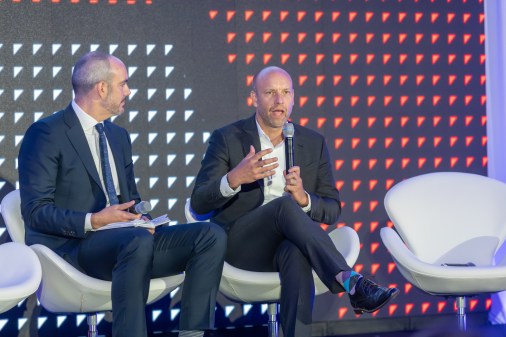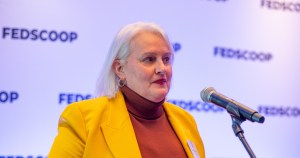
Mary Davie would like to create a collaboration platform for acquisition officials across the government to share information and best practices, along with a number of tools to help each do his or her job more efficiently.
Davie, the Assistant Commission for Integrated Technology Services at the General Services Administration’s Federal Acquisition Service, said that includes creating a “Turbo Tax for acquisition” type solution – essentially an easy to use template – that will streamline the purchasing process by simplifying it.
“My big thing is collaboration,” Davie told FedScoop, “and I’d like ITS and FAS to become a platform for acquisition officials to come together to share what they’ve learned on different projects and different ways for acquiring different services.”
Davie said that program is on her list of pet projects she would like to get to if time allows, but fits in with her bigger mission of just making the acquisition process simpler, whether it be focusing on existing schedules, contracts or new programs.
One of those is the newly-announced OASIS enterprise program that will bring professional services with an IT component together in one place.
The initiative has already had its business plan approved by Office of Management and Budget, and Davie said she and her team are talking with agencies about the requirements and what they would like out of the program. She also said GSA will meet with government officials during “speed dating” sessions at GSA’s 2012 Expo in San Antonio in July. There will also be roundtables with industry executives.
“I get requests for meetings every day to discuss the program,” Davie said. “It’s great to see the amount of interest this program has already gotten.”
Davie took her current position as assistant commissioner for ITS in January of 2011 after working as the assistant commissioner for Assisted Acquisition Services at GSA and before that heading GSA’s CRM and sales unit. She joined GSA in 1989.
Her biggest goals going forward include changing FAS ITS as technology and the main players change. For instance, there is a number of different avenues government agencies can go through to procure cloud services. How about just one or at least a primary one? That same goes for things like wireless or data center contracts.
“We don’t want to create more contracts for contracts sake,” Davie said. “There are enough contracts. It’s finding ways to do things more efficiently and change the matter of how we buy things and make them available to the government.”






